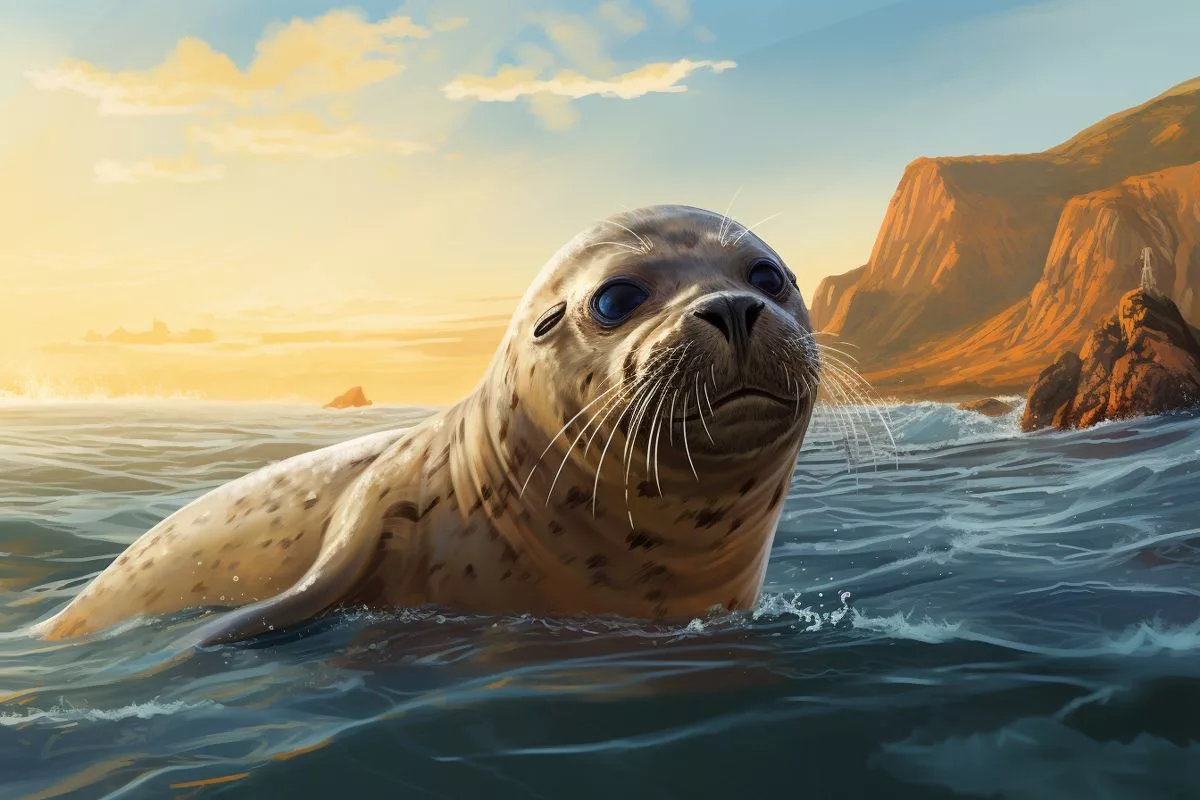Efforts are being made to protect marine mammals in Cape Town from the illegal and inhumane activity of feeding seals. The City of Cape Town and the Department of Forestry, Fisheries and Environment have taken proactive measures to ensure the cessation of this mistreatment, but persistent challenges remain. The protection and assurance of seal welfare is a collective responsibility that requires the commitment of the public, tour operators, and guides to become protectors of marine wildlife.
United Efforts to Protect Marine Mammals in Cape Town: Joining Forces for Seal Welfare. The City of Cape Town and the Department of Forestry, Fisheries and Environment have taken proactive measures against the illegal and inhumane activity of feeding seals. To ensure the cessation of this mistreatment, enforcement of laws and the commitment of the public is necessary. Seal welfare is a collective responsibility, and the journey towards a future where seals can experience their natural habitat, free from exploitation, has begun.
Joining Forces for a Good Cause
In a concerted effort for the well-being of marine mammals, several entities have come together, including the City of Cape Town, the Department of Forestry, Fisheries and Environment (DFFE), and various key participants. Their joint endeavor focuses on eradicating an illegal and inhumane activity that has marred the scenic beauty of Hout Bay harbor – illicit feeding of seals.
Contrary to some perceptions, this is not an innocuous practice. Instead, it’s a malpractice that takes advantage of seals, transforming them into illegitimate instruments for extorting money from unsuspecting tourists visiting the Hout Bay harbor. These seals are inappropriately fed, made accustomed, and manipulated, directly contravening the city’s Coastal By-Law and the Threatened or Protected Marine Species Regulations.
Taking Proactive Measures
The City and DFFE have taken a forward-looking stance, cautioning the public, tour operators, and guides that any engagement with the seals, including feeding, approaching, disturbing, or tormenting them, is a legal offense. The law enforcement authorities are on high alert, and any individual found violating these laws may face detention and potential legal charges.
To ensure that this message is clearly communicated, the public is notified that certain activities could result in an on-the-spot fine of up to R3000 under the City’s Coastal By-law. These activities comprise paying someone to feed a seal or lure it into performing tricks, taking a photograph with a seal, touching or sitting on a seal, or even merely staying within 5m of a seal.
Persistent Challenges on the Ground
Despite a large-scale operation by the Society for the Prevention of Cruelty to Animals (SPCA) that involved capturing and relocating five accustomed seals, the illicit seal feeding and cruel habituation continue. In a stark demonstration of the power of habituation, one of the relocated seals swam the 700km journey back to Hout Bay harbor within a week. This impressive show of resilience, however, underscores that relocation is not a sustainable long-term solution.
Nonetheless, the City maintains its unwavering dedication to observing the situation. As put by Alderman Eddie Andrews, the City’s Deputy Mayor and Mayoral Committee Member for Spatial Planning and Environment, they are “requesting members of the public, tour operators, tour guides, and all our visitors to collaborate with the City and DFFE to stop this maltreatment and inhumanity that seals undergo during training.”
Responsible Tourism: The Future
At the core of this endeavor is the concept of responsible tourism. This shift in perspective entails admiring the coastal wildlife from a safe distance while strictly avoiding any interference. It promotes respect for these creatures, letting them live and flourish within their natural environment.
The cessation of this relentless mistreatment, training, and feeding of the wild seals relies on a single element—removal of incentives for those committing these acts. With ongoing education, rigorous enforcement of the laws, and the unified commitment of the public, tour operators, and guides, there is optimism that this inhumane practice will soon be terminated.
Shared Responsibility for Seal Welfare
The protection and assurance of seal welfare is a collective responsibility. Accordingly, DFFE urges anyone who observes the feeding and torment of seals to report such incidents. This not only enforces accountability but also encourages every individual to become a protector of marine wildlife.
As the City of Cape Town, DFFE and other stakeholders strive to address this problem, one fact remains evident: the seals’ welfare is of utmost importance. The journey towards a future where seals can experience their natural habitat, free from molestation and exploitation, has begun and it requires the combined effort of all inhabitants and visitors of this beautiful harbor town.
What is the joint endeavor focused on by the City of Cape Town and the Department of Forestry, Fisheries and Environment?
The joint endeavor focuses on eradicating the illegal and inhumane activity of feeding seals, which takes advantage of seals and transforms them into illegitimate instruments for extorting money from unsuspecting tourists visiting the Hout Bay harbor.
What measures have the City of Cape Town and the Department of Forestry, Fisheries and Environment taken to stop illicit feeding of seals?
The City and DFFE have taken a forward-looking stance, cautioning the public, tour operators, and guides that any engagement with the seals, including feeding, approaching, disturbing, or tormenting them, is a legal offense. The law enforcement authorities are on high alert, and any individual found violating these laws may face detention and potential legal charges.
What are the consequences of engaging with seals in an illegal manner?
Certain activities could result in an on-the-spot fine of up to R3000 under the City’s Coastal By-law. These activities comprise paying someone to feed a seal or lure it into performing tricks, taking a photograph with a seal, touching or sitting on a seal, or even merely staying within 5m of a seal.
What are the persistent challenges faced in the protection of marine mammals in Cape Town?
Despite a large-scale operation by the Society for the Prevention of Cruelty to Animals (SPCA) that involved capturing and relocating five accustomed seals, the illicit seal feeding and cruel habituation continue. Relocation is not a sustainable long-term solution, and the City maintains its unwavering dedication to observing the situation.
What is responsible tourism, and how does it relate to this initiative?
Responsible tourism entails admiring the coastal wildlife from a safe distance while strictly avoiding any interference. It promotes respect for these creatures, letting them live and flourish within their natural environment. At the core of this endeavor is the concept of responsible tourism.
What is the shared responsibility for seal welfare, and how can individuals get involved?
The protection and assurance of seal welfare is a collective responsibility that requires the commitment of the public, tour operators, and guides to become protectors of marine wildlife. DFFE urges anyone who observes the feeding and torment of seals to report such incidents. This not only enforces accountability but also encourages every individual to become a protector of marine wildlife.








